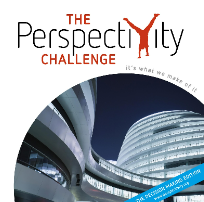Gameplay
The game participants (24 people ideally) are divided into two, six person groups. There are two game boards. Each game board represents an organization and on each board there are six teams representing fictitious departments or business units within that organization.
The game starts with a short introduction followed by 10 rounds of the game. Each round consists of two parts: the decision time and the central time. Rounds 3, 6 and 8 also contain a third part: negotiation time. The players need to develop the performance of their department by making decisions (so that tasks get done) and by building their communication infrastructure. When the game has ended, it is followed by a debrief that ties together and reflects upon the lessons from the game.
Context
The world is becoming increasingly complex and this calls for appropriate tools on how to deal with the world’s commons. The Decision-making Challenge aims to provide players with insights into the dynamics at play and to stimulate reflection on collaboration between different players with different interests and perspectives. The Decision-making Challenge is a variation on the Perspectivity Climate Challenge, which is based on the tragedy of the commons and complexity theory. Rather than dealing with a global social issue, the Decision-making Challenge focuses on issues inside the organization or company, allowing players to deal with issues they face when working with others on the day-to-day level.
Target group
Benefits
What lessons do you remember best? Textbook texts or those where you experienced a problem yourself and had to think hard about it? The Perspectivity Challenge creates a lesson from experience in the social dynamics of complex issues. Each challenge puts its players in the shoes of key decision makers.
During the challenges, participants will face the issues that our world leaders are all too familiar with: growth spurts, limited resources, international negotiations, downturns and conflicts. They experience the impact of the choices of individuals as well as of groups. The Perspectivity Challenge triggers a unique learning experience that will leave the participants with an improved understanding of how a sustainable future could materialize.
Trivia
The game was created because of repeated requests that Perspectivity would create a game that could be played inside organizations and that focuses on workplace dynamics.
After playing, players often note the similarities they see between the dynamics in the game and those in their own department, “that is totally what happens in the HR department” or “this is so similar to how my colleagues and I work together in our team”.
Created by
Type
Genre
Price
Number of players
Number of moderators
Duration
Materials
Decision-making Challenge game set


